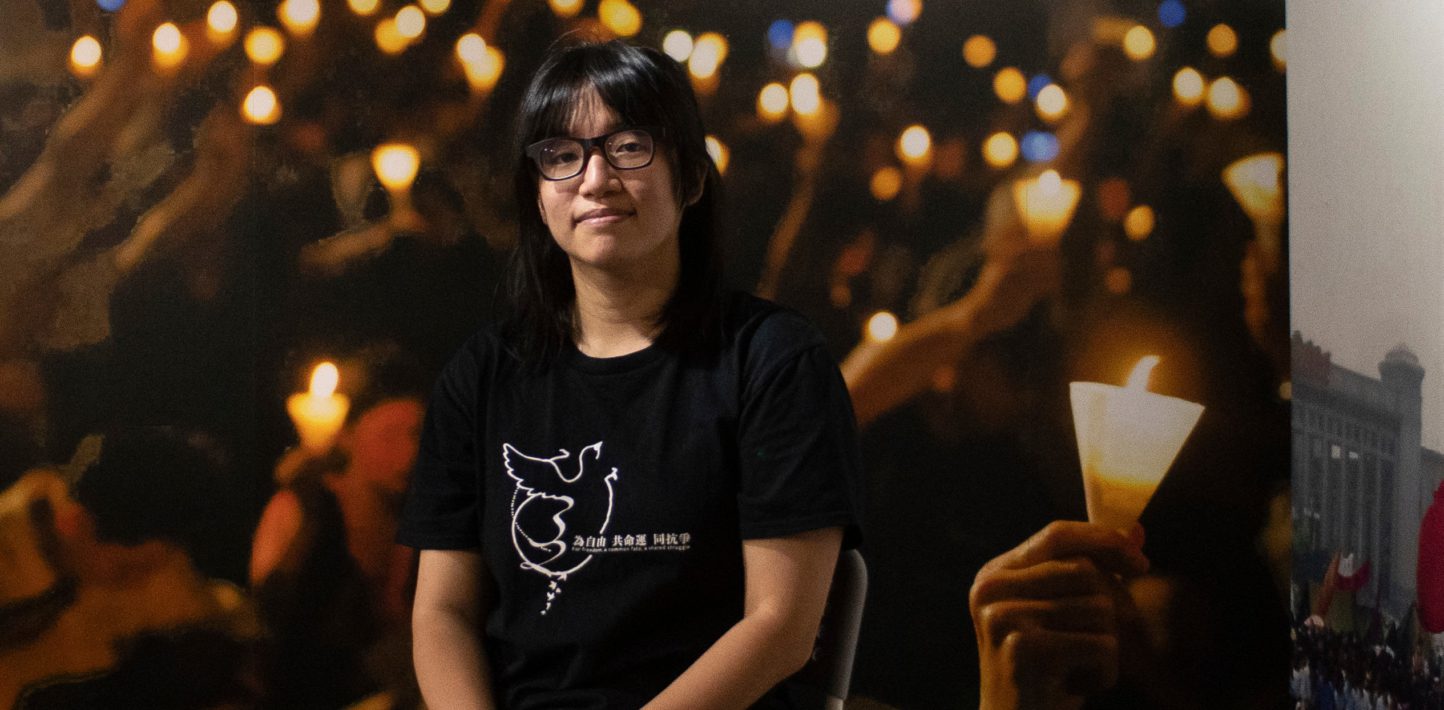By Chow Hang-tung, human rights activist, Tiananmen vigil organizer and barrister, currently jailed in Hong Kong
It was a sad moment when Amnesty International closed its Hong Kong offices after standing for more than 40 years in my city.
This organization is very important to me – and not just because they have campaigned for my release since I was imprisoned last year.
Amnesty has been the window that gives an international perspective to my human rights work. Seeing its demise is like watching parts of myself disappear, leaving an empty shell floating in the rubble.
My connection with Amnesty did not start in Hong Kong, but while I was in the UK studying at Cambridge. At that time, as an ignorant college student, I assumed there would be plenty of societies dedicated to the Tiananmen crackdown or other China-related issues.
But finding none that specialized in that particular area, I enrolled in Cambridge University Amnesty International (CUAI).
It was only after I joined that I learned that Amnesty is the world’s largest membership-based human rights organization, with millions of members in more than a hundred countries – democratically deciding on the issues and directions it wants to focus on, independent of any political power or national force. I was struck by the notion that the unifying power of an idea could be so great.
The bottom-up approach in the organization can transcend cultures and borders, bringing together the power of ordinary people into a force that no country can ignore. I got up the nerve to run for the executive committee and became an executive member – organizing letter-writing groups for prisoners of conscience around the world, as well as exhibitions, lectures, debates, screenings, fundraising galas, even competitive letter-writing contests.
I felt good that I, as an individual and a member of a collective, could do something to fight injustice.
CUAI’s most iconic event is CAGE! A group of students are locked up in relay in a cage perched on the King’s College lawn for 24 hours a day, while asking people to sign, donate or take action. Now I am one of those prisoners of conscience we were campaigning for, and I really do sleep on a hard bed in jail. But I don’t really feel that uncomfortable.
The CUAI has a high degree of freedom, and my first attempt to organize a June 4 memorial in Cambridge was under the CUAI umbrella. Amnesty was the inspiration for my advocacy. Without that period of experimentation and experience, I probably would not be the person I am now.
When I returned to Hong Kong in 2010, I represented Amnesty – working alongside colleagues all over the world. I learned that by listening more to other people’s stories and struggles, you feel less trapped in your own problems. It helps you realize yours is not the only struggle.
For a decade I have been passionately involved in the Hong Kong Alliance in Support of Patriotic Democratic Movements of China (the Alliance), which organized the city’s Tiananmen vigil – until it was forced to disband last year with many of our most prominent members detained.
The Alliance is a world away from Amnesty. It was a small, single-issue organization run by dedicated and enthusiastic members, yet it is respected and beloved among people in Hong Kong.
I had the privilege of experiencing a time when Hong Kong was still open and pluralistic, and when global human rights organizations were not viewed with suspicion and hostility because of their international status. People were able to participate in both local and international organizations, to collaborate and interact with a variety of groups, so that different experiences could complement each other and civil society as a whole could grow and progress in a diverse and communicative way, making Hong Kong truly a world city.
That is not the Hong Kong the next generation stands to inherit. Hong Kong as a society is going exactly in the opposite direction – denying diversity, hostile to foreign views, with a disjointed and battered civil society increasingly afraid to collaborate with each other. That makes it hard for groups like mine to survive, which is of course the intention.
The departure of Amnesty is an unmistakable warning sign to the outside world about just how dire the state of human rights is in Hong Kong. There can be no more pretence of freedom.


